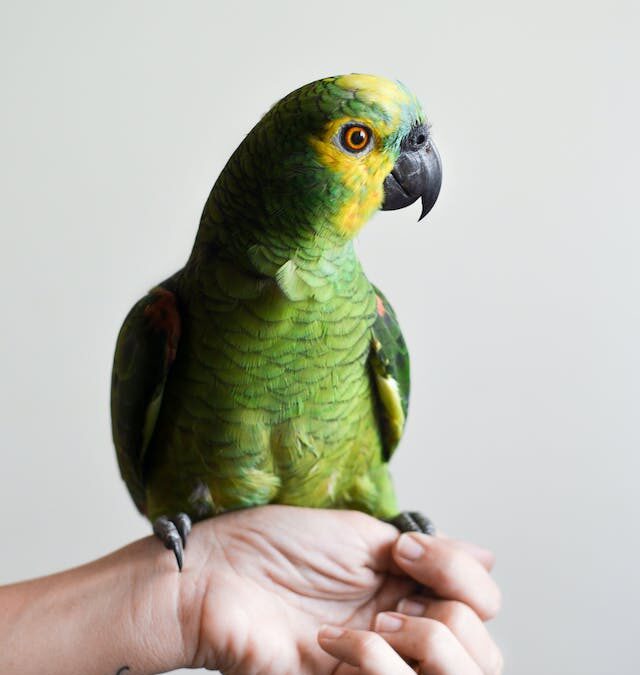Bird lovers are a special breed of pet owners. They delight in the antics of these inquisitive creatures and the beauty of some of the more exotic species. However, adopting a bird requires a great deal of commitment and understanding. Sure, birds may appear relatively low maintenance and it’s lovely to hear their chatter in the morning, but there are a few things to be prepared for when bringing home a feathered pet.
Expect to be awakened early
Are you used to rising to the sound of an alarm clock? With a pet bird, that might not be necessary. Just like their peers outside your window, these small animals love to greet the morning sun with a song. In addition, while your pet is getting used to their new environment, they may be a bit chatty at other times. This can be especially disrupting if they chirp during the night. The secret to discouraging this is simply giving them some time to adjust, or using a cage cover overnight.
Get used to a noisier household
Your feathered friend may love to entertain you with birdsong, but this will depend on the specific species you own, since some will be noisier than others. Budgies and canaries, for example, make sounds that are quite pleasant to the ears. On the other hand, parrots tend to squawk and scream. These loud vocalizations may continue for an extended period and even bother your neighbors.
You’ll have more messes to clean
Birds often make big messes. Their sloppy eating habits can spread food around inside their cage and even outside the cage bars. Furthermore, their bathroom behavior leaves a lot to be desired. You will find their droppings everywhere, from the cage bottom to nearby walls, baseboards, and the floor. Plus, if your pet spends some time outside the cage, they have no trouble defecating there too—even if they’re perched on your shoulder. Prepare to be on regular clean-up duty.
Birds love to chew stuff
Since birds’ beaks are always growing, your pet will try to keep the growth in check by chewing. This is really the only way they have to properly maintain their beaks, and it means that they will literally chew anything within reach. To avoid too much damage to your furniture and other belongings, it’s a good idea to make sure your bird has an adequate number of chew toys.
There will be more dust to control
Have you ever wondered how birds stay looking so lovely? Your pet will do a lot of preening to keep their feathers in good shape. As birds grow, they produce new feathers and shed the older ones. This is called molting and it can continue for a while. The upshot is that owners have a lot of feathers to sweep up and clean out of their pet’s cage. Not only that, but there is considerable feather dust produced during the process.
You may have a few bites
It’s not just dogs and cats that will bite sometimes. Birds do as well. Your feathered friend will not always bite to show aggression; it could be because they are excited or afraid, too. Birds will generally bite the closest human body part, so they’ll often go for fingers, ears, and noses. Understandably, birds with bigger beaks can do more damage.
Special diets are required
Variety is the key when it comes to feeding your feathered pet. You can find the right seed, pellets, and other treats at your local pet store, and this should be a staple in their diet. Additionally, plan to have lots of fresh produce on hand to provide adequate nutrition and a range of choices. You’ll quickly learn your bird’s favorites to feast on.
Providing socialization is critical
Pet birds need regular interaction with their owners. These creatures are essentially wild and taming them includes frequent handling and human contact. The good news is that it can be a real pleasure to get to know your bird’s individual personality as you build a rapport and routine with them.
Avian veterinarians are needed
Not every vet will have the expertise to care for your feathered friend. Just like cats, dogs, and other pets, birds must have annual veterinary checkups. These checkups are the opportunity for the veterinarian to examine your pet for any concerns and give you advice for keeping your bird in top shape. Search online to find an avian veterinarian near you. The Association of Avian Veterinarians also provides a vet finder on their website.
In closing
One final piece of advice—and potentially the most important tip—is to make a budget, because the cost of owning a bird can be quite expensive, though it can vary dramatically depending on the species. For instance, the purchase price for a small breed like a budgie or canary will be well under $100, while exotic birds such as cockatoos and macaws can sell for thousands of dollars. Do your research, talk to other owners, and consider your budget before you take the leap into bird ownership.

